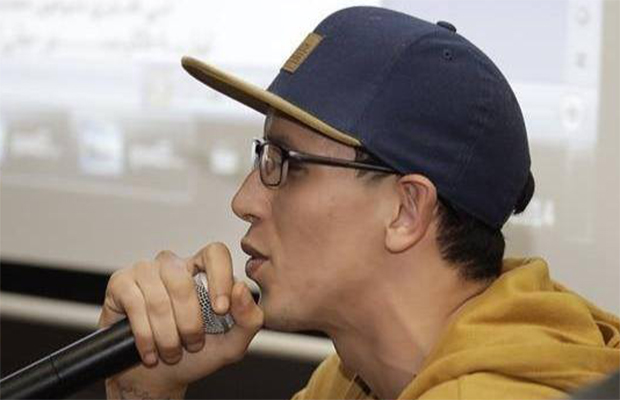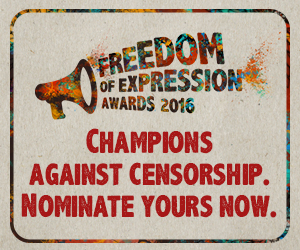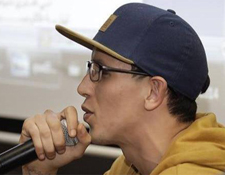
Index on Censorship Arts award winner 2015: Mouad ‘El Haqed’ Belghouat
Generally speaking, Arabic hip hop comes in two categories. There are rappers in the Gulf who like to brag about how great it is to be really, really rich. Then there are artists in places like Palestine and Algeria who use their work to talk about the endemic problems they face in their communities: disenfranchisement, discrimination, destitution and violence.
Index on Censorship Arts award winner Mouad “El Haqed” Belghouat falls under the latter category. Hailing from Morocco, where the youth have been keen consumers of hip hop for many years, El Haqed has had a lot of attention since the Arab Spring. Rapping about poverty, police corruption and oppression in the country, the 24-year old has been felt the full force of the law. Arrested for the first time in 2011, he spent two years in prison before being arrested twice more because of his music.
Index spoke with El Haqed in June when he had just returned to Morocco in high spirits following a tour of Norway, Sweden and Denmark, and was looking forward to performing for the first time in his hometown of Casablanca. Unfortunately, the Moroccan state went to extraordinary lengths — blocking off roads and ordering an electricity company to shut off power — to ensure the concert didn’t go ahead. He is effectively banned from performing live or appearing on TV or radio.
Asked why the Moroccan government wants to silence him so badly, El Haqed said: “Because I continue to speak out against them and fight for freedom of expression.” On several occasions, the authorities have asked El Haqed to renounce his views. “They want me to say that we live in a democracy and that everything is OK, but I have always refused.”
An all too frequent but often unavoidable fact of life as an artist under siege is that there will be times when keeping a low profile seems necessary. While El Haqed is still writing and recording music, he isn’t currently posting to YouTube as he was before. “Publishing music at the minute would only cause more problems,” he explains. He adds, however, that this is only a temporary setback, and publishing on YouTube and to his tens of thousands of social media followers is very much a part of his future plans.
 One area of extreme difficulty has been finding the right people — including a producer — to work with. El Haqed used to write music with other artists in Morocco, but this has become an inconvenience. “Musicians were told by the authorities to stop working with me, or they would be made to,” he says.
One area of extreme difficulty has been finding the right people — including a producer — to work with. El Haqed used to write music with other artists in Morocco, but this has become an inconvenience. “Musicians were told by the authorities to stop working with me, or they would be made to,” he says.
Although in the past El Haqed pushed the authorities to give him permission to perform in Morocco, he is resigned to the fact this may never happen. But there is hope. Visa applications pending, he has been invited to spend a week in Florence, Italy, in October for an exchange with Italian musicians, a debate on the music of the new generation and to perform in concert. A major focus of this visit will be to facilitate artistic collaboration.
He has also been invited to perform in Belgium in October by at the 25th anniversary of the Moroccan Association of Human Rights due to his being a “committed musician and human rights defender”.
Like one in five people his age in Morocco, El Haqed doesn’t currently have a job and relies heavily on family and friends for support. While it may be easier if he left Morocco to pursue a career in music, he has no intention of relocating.
“I love my country, and while I want to perform abroad, I will always come back to Morocco,” he says.
Index on Censorship demands Moroccan authorities end their harassment of El Haqed and allow him, and others like him, to perform in the country.





